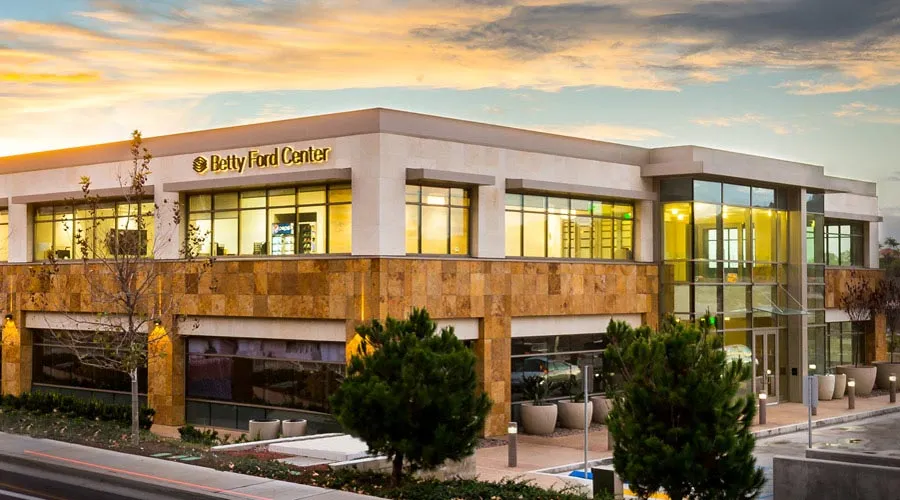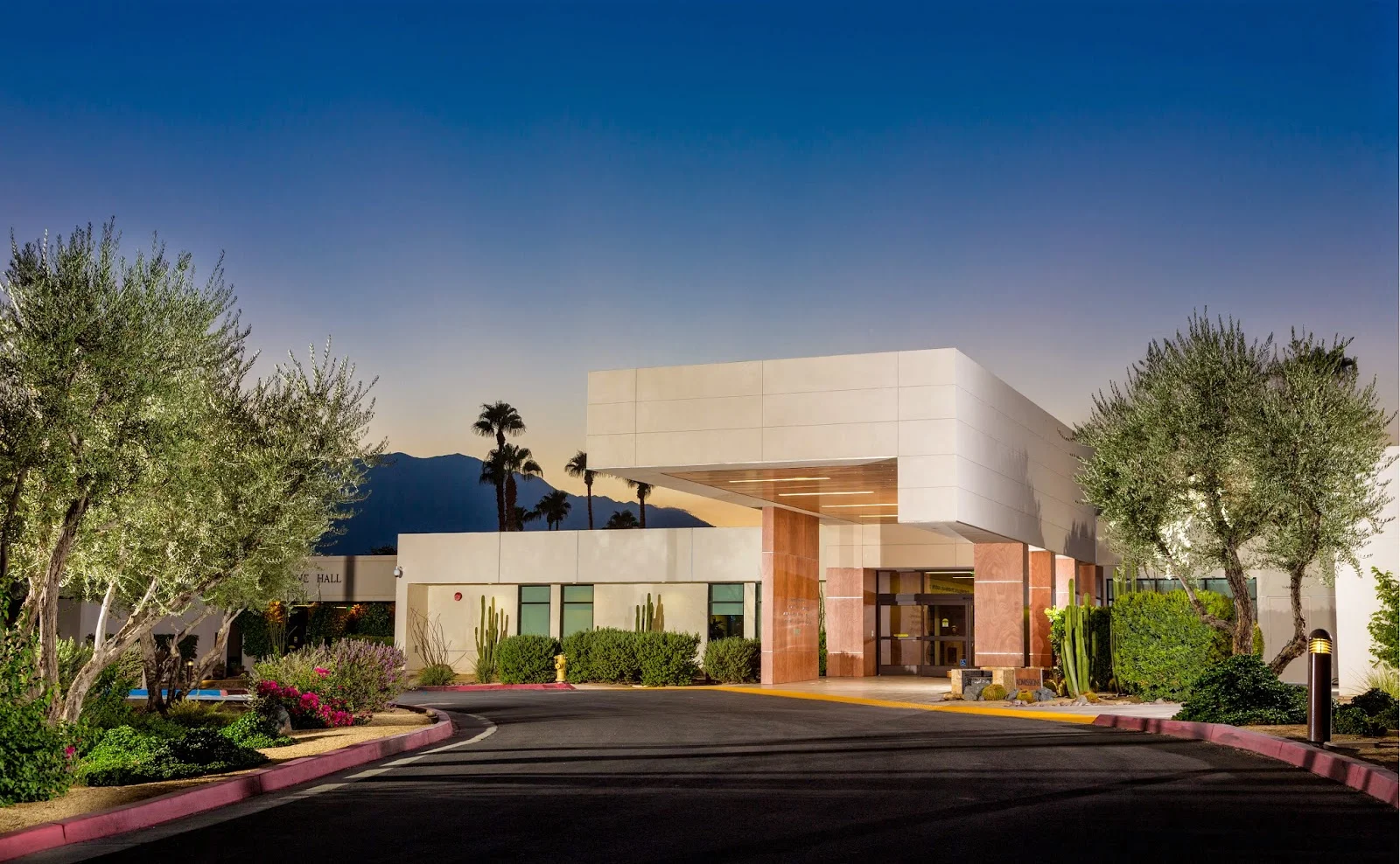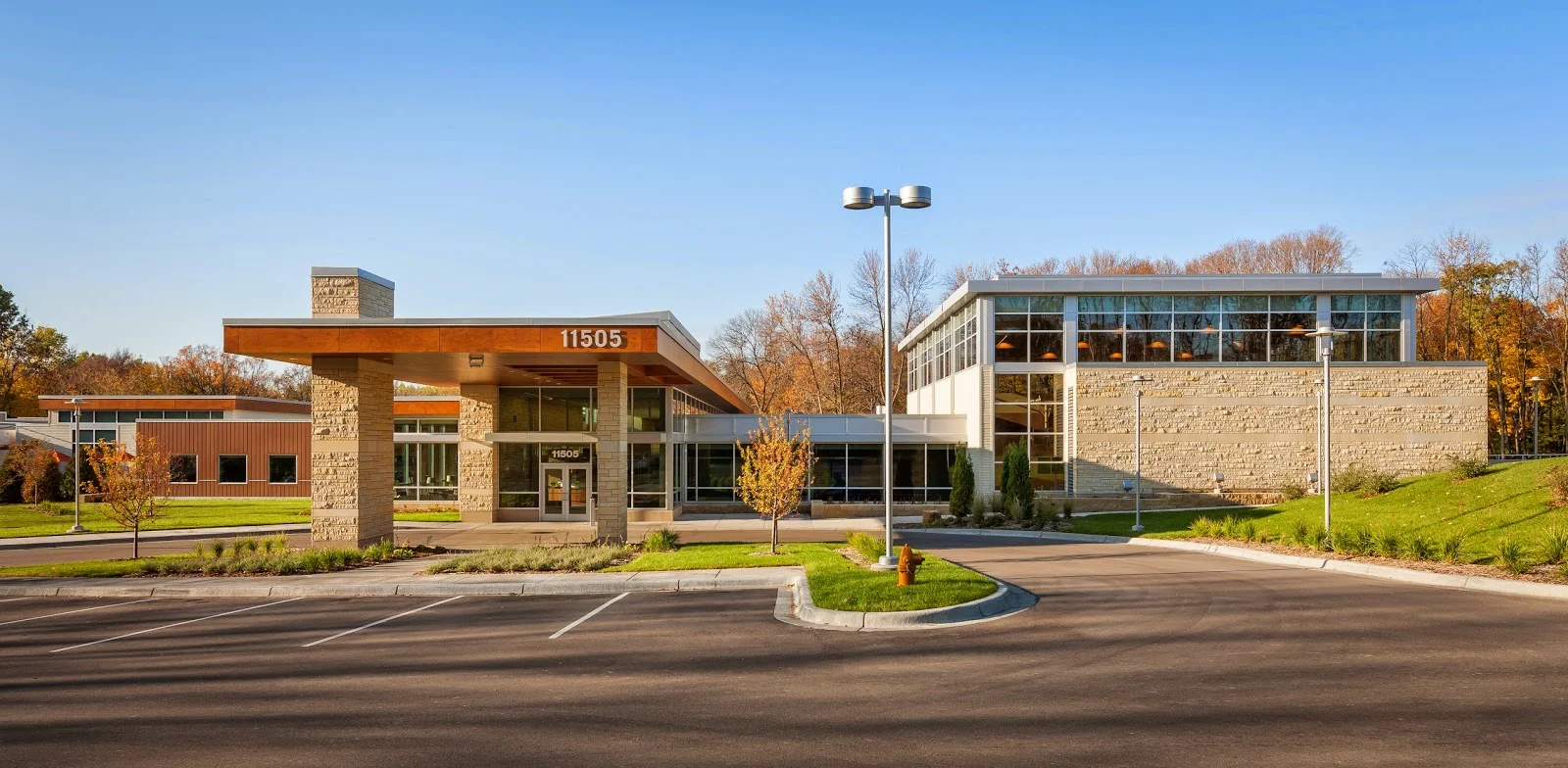Founded by former First Lady Betty Ford, a pioneer in addiction recovery, the Betty Ford Center is located in Rancho Mirage, California. The center specializes in comprehensive addiction rehabilitation, recovery support and coaching, services for loved ones, and dual-diagnosis treatment for those with co-occurring mental health disorders.
The Betty Ford Center offers both inpatient and outpatient treatment for substance use disorders, as well as medical detox in a safe and comfortable setting. All treatment needs of clients are catered to onsite by a multidisciplinary team of psychiatrists, medical professionals, therapists, and counselors. This collaborative treatment approach addresses all aspects of a client’s substance use and co-occurring conditions for better recovery outcomes.
To provide clients with the best opportunity for long-lasting recovery, clinicians at the Betty Ford Center utilize a variety of evidence-based treatments. These include cognitive behavioral therapy (CBT), acceptance and commitment therapy (ACT), solution-focused therapy, and medication-assisted treatment (MAT). The benefit of MAT is that medications are used to reduce cravings and mental health symptoms, allowing clients to concentrate on their recovery.
The level of care extended to a client’s loved ones is impressive. A variety of family programs, coaching, and workshops are available both in-person and virtually. These programs help loved ones understand addiction, the recovery process, and improve connection and communication within the family.
At the Betty Ford Center, the primary goal is to provide expert addiction and mental health care to clients and their families. This mission of healing, envisioned by First Lady and addiction recovery trailblazer Betty Ford, has been the cornerstone of the center since its founding in 1982. Now part of the nonprofit Hazelden Betty Ford treatment centers—ranked #1 nationally by Newsweek—the Betty Ford Center specializes in comprehensive addiction rehabilitation, integrated care for co-occurring mental health conditions, recovery support and coaching, and parallel services for family members.
Addiction is a complex condition, and the most effective care—whether residential or outpatient treatment—centers on a comprehensive approach. The multidisciplinary teams at the Betty Ford Center synchronize therapies and treatment for all aspects of substance use and co-occurring mental health disorders, ensuring complete care for all issues and complexities.
Unlike most other inpatient drug rehabs in California, the Betty Ford Center has psychiatrists, medical staff, therapists, and counselors on site, providing continuous care and addressing needs and concerns as they arise.
The Betty Ford Center is accredited by the Joint Commission with accreditation number 944. They are a member of the National Association of Addiction Treatment Providers (NAATP) with member ID 1366, and are listed by the Substance Abuse and Mental Health Services Administration (SAMHSA). The center holds a state license from California with license number 330164AN.
Betty Ford Center Information
Treatment
Who We Treat
- Adults
- Children
- Young adults
- Teens or Adolescents
- Men
- Women
- Couples
Approaches
- Individual Treatment
- Motivational interviewing
- Dialectical Behavior Therapy (DBT)
- Cognitive Behavioral Therapy (CBT)
- Nutrition Counseling
Conditions We Treat
- ADHD / ADD
- Trauma
- Co-Occurring Disorders
Substances We Treat
- Buprenorphine
- Naltrexone
- Vivitrol
Languages
- Sign language services for the deaf and hard of hearing
Level of Care
- Outpatient
- Intensive Outpatient Treatment
- Outpatient Detoxification
- Partial Hospitalization Program
- Hospital Inpatient Treatment
- Inpatient
- Hospital Inpatient Detoxification
- Halfway house
- Aftercare or Continuing Care
Experience
On-Site Amenities
- Gym / Fitness Center
Personal Amenities
- Private or Shared Rooms
- Ocean or Mountain View
Highlights About Betty Ford Center
-
Treatment Modalities 8.82
-
Opioid Treatment 8.23
-
Insurance Coverage 7.80
-
Alcohol Treatment 7.00
Accreditations
-
State department of health
Government agencies issue State Licenses, granting rehabilitation organizations permission to operate their businesses legally within specific geographic regions. The licenses needed for legal operation are typically determined by the type of rehabilitation program offered by a facility and its physical location.
-
Commission on Accreditation of Rehabilitation Facilities (CARF)
CARF accreditation is a prestigious recognition for rehabilitation and human service organizations. It signifies that an organization meets high-quality standards and is committed to providing top-level care. CARF conducts rigorous evaluations to ensure compliance, enhancing an organization's credibility and reassuring clients and funders of exceptional service quality. This accreditation promotes excellence and continual improvement in the rehabilitation and human services field.
-
The Joint Commission
The Joint Commission accreditation signifies that a facility has met rigorous standards of excellence in patient care, treatment, and safety. It assures individuals and healthcare professionals that the accredited facility provides high-quality, evidence-based care for addiction and mental health issues, fostering trust and confidence in their services.

-
NAATP
The NAATP accreditation is a recognized certification for addiction and behavioral health facilities. This accreditation serves as a validation of a center's commitment to maintaining high standards in the field. It signifies that the facility has met specific criteria and requirements set by NAATP, ensuring that individuals seeking addiction and behavioral health services can expect a level of quality and professionalism in their care. NAATP accreditation is a notable benchmark for facilities striving to provide effective and ethical treatment within this critical healthcare sector.
-
SAMHSA certification for opioid treatment program (OTP)
Accreditation by the Substance Abuse and Mental Health Services Administration (SAMHSA) for Opioid Treatment Programs (OTPs) signifies that a program has met strict standards for providing high-quality care to individuals with opioid use disorders. It assures patients, families, and communities that the OTP follows evidence-based practices, employs qualified staff and maintains a safe and effective treatment environment. This accreditation reflects the program's commitment to addressing the opioid epidemic and promoting recovery.
Additional Locations
Betty Ford Center, California Reviews
Find the best treatment options. Call our free and confidential helpline today!












